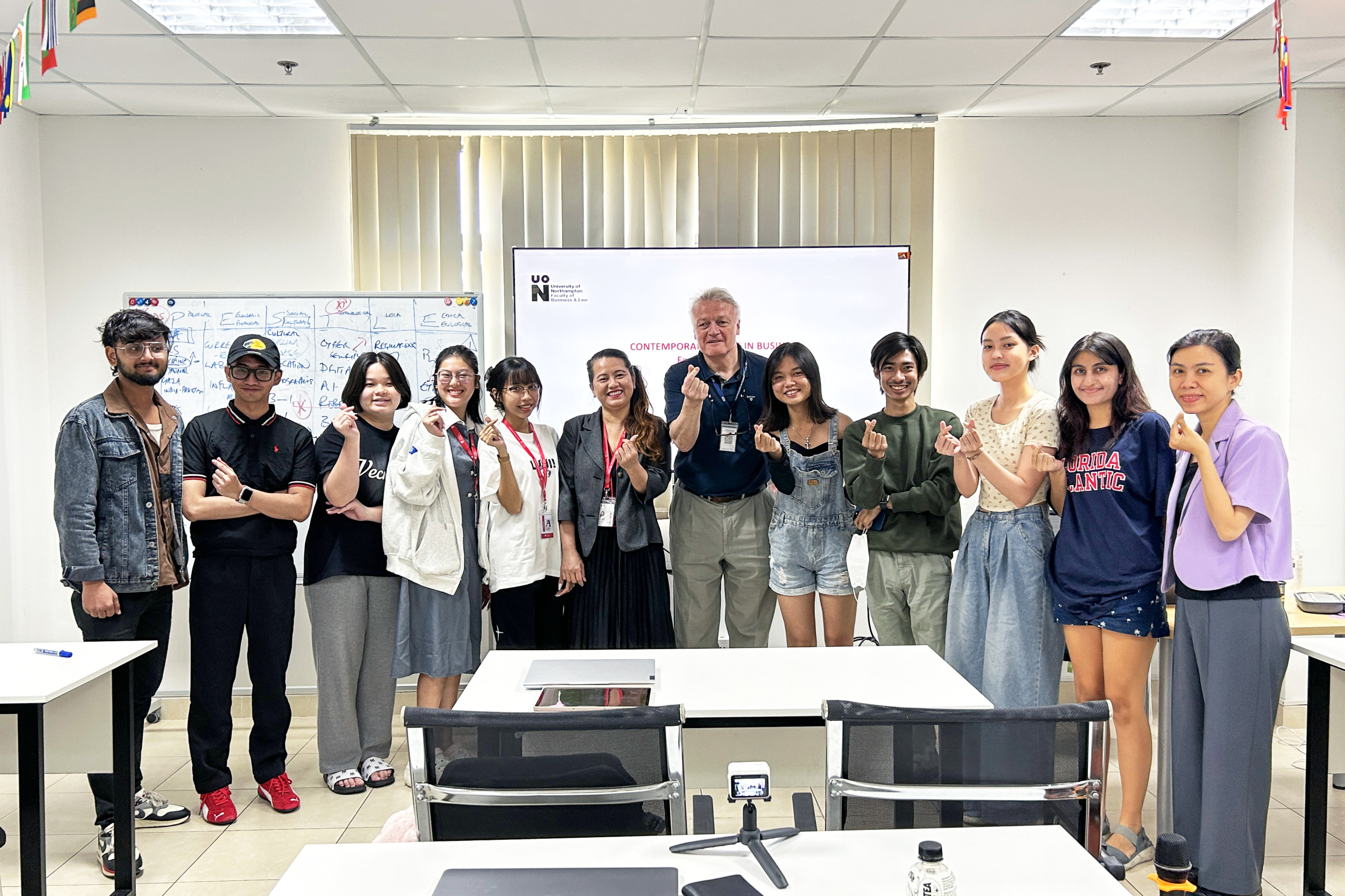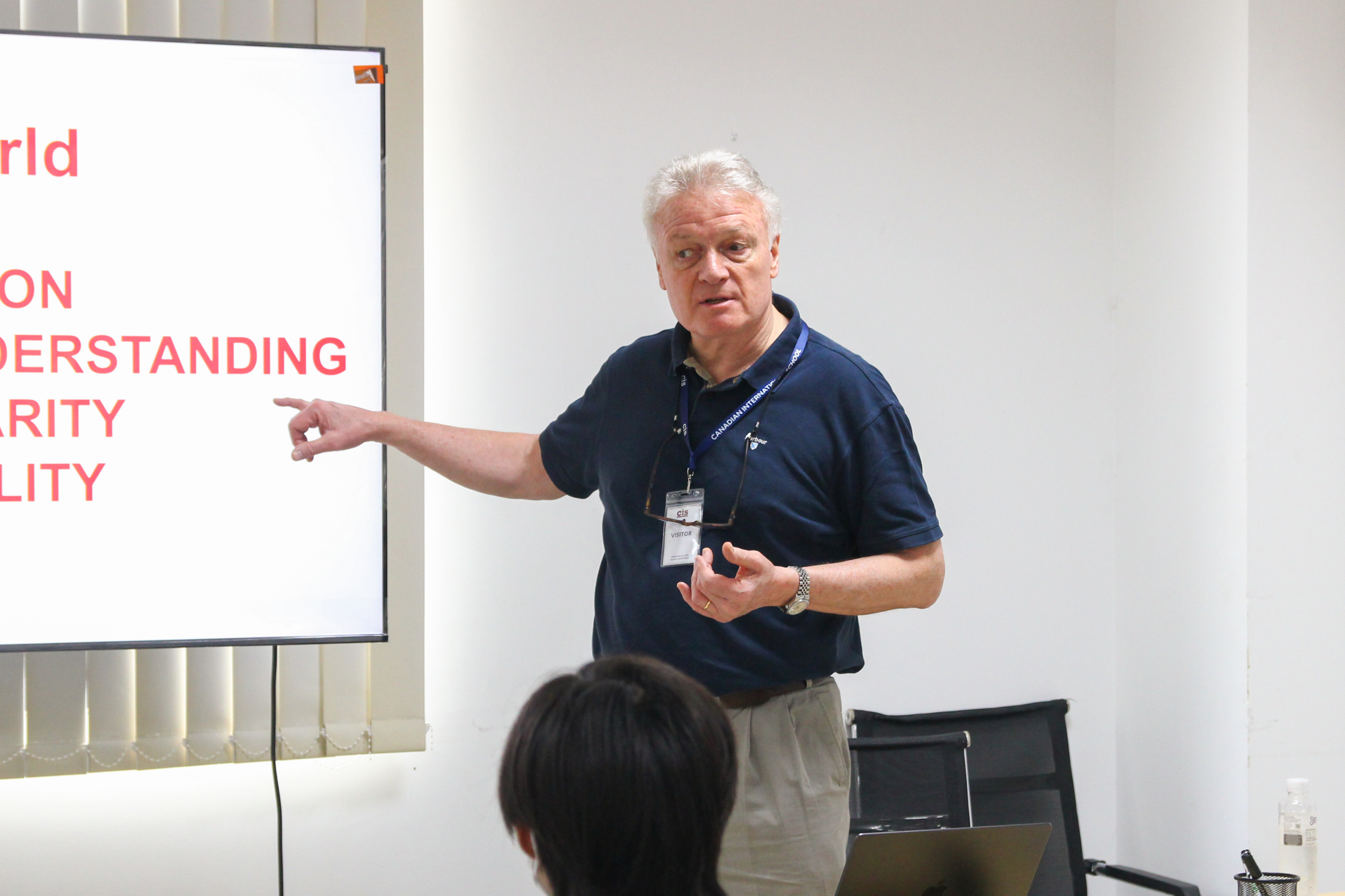Ho Chi Minh City, May 4 – In line with its ongoing commitment to enhancing educational quality and expanding international academic exposure for students, Saigon Business School (SBS) successfully organized a themed workshop on “Business Strategy” for Business Administration students.
The event was led by Professor Adrian Pryce, Associate Professor in Strategy and International Business at the University of Northampton, United Kingdom.

The workshop received enthusiastic participation from SBS business students, creating a vibrant academic platform that encouraged active learning and professional growth. Professor Pryce delivered in-depth and up-to-date analyses on corporate strategic planning in today’s dynamic global economy. Notably, he introduced and applied modern strategic models and analytical tools, allowing students to approach complex concepts in a visual, practical, and highly applicable manner.
Key Focus Areas of the Workshop
The session was designed to equip students with essential strategic frameworks and analytical tools to decode and navigate the complexities of contemporary business environments.

1.Analyzing the Business Environment through the VULCA Lens
Professor Pryce introduced the VULCA framework, which includes:
- Volatility
- Uncertainty
- Complexity
- Ambiguity
This framework plays a crucial role in helping organizations identify and evaluate the multi-dimensional challenges they face when formulating and executing strategies.
2.Applying the PESTLE Model in Business Strategy Development
Students were guided through the application of the PESTLE model, which analyzes macro-environmental factors that influence business operations:
- Political
- Economic
- Social
- Technological
- Legal
- Environmental
This approach enables students to craft adaptable and context-specific strategies tailored to individual target markets.
3.Strategic Foresight with the FUTURE Model
A key highlight of the workshop was the introduction of the FUTURE model, a forward-thinking strategic tool designed to help students anticipate and prepare for emerging trends:
- Fast – Emphasizes speed and agility in innovation
- Urban – Examines how urbanization impacts consumer behavior and needs
- Tribal – Highlights the value of understanding personalization and consumer communities
- Universal – Encourages global thinking and the use of borderless connectivity
- Radical – Promotes disruptive thinking and openness to revolutionary change
- Ethical & Ecological – Stresses the integration of ethics and sustainability in corporate strategy
The FUTURE model not only provides a comprehensive lens for shaping long-term vision but also nurtures students’ adaptability and proactive mindset amid rapidly shifting business conditions.
About Professor Adrian Pryce
Professor Adrian Pryce is an Associate Professor in Strategy and International Business at the Faculty of Business and Law, University of Northampton, where he also serves as Programme Leader for the MSc in International Business Management.

His multifaceted career spans banking, travel and tourism, the food industry, academia, and the nonprofit sector. Professor Pryce possesses a rich interdisciplinary background and extensive hands-on experience in international business development across Europe, Asia, the Caribbean, and Latin America. He has held both executive and consulting roles in the private, public, and NGO sectors, including a collaboration with the World Bank.
In addition to teaching, Professor Pryce holds several key positions:
- Outreach Lead at the Centre for Sustainable Business Practices, University of Northampton
- Deputy Director of the China & Emerging Economies Centre (CEEC), where he contributes to multi-stakeholder regional development initiatives between the UK and China
Building a Global & Responsible Strategic Mindset
Through Professor Pryce’s engaging session, SBS students not only deepened their foundational knowledge in strategic business thinking but also gained valuable insights into the importance of aligning strategy with social responsibility and environmental sustainability.
Saigon Business School (SBS) reaffirms its commitment to promoting international collaboration with leading experts and scholars, aiming to equip future graduates with core competencies, leadership qualities, and a sustainable development mindset to thrive in tomorrow’s global job market.